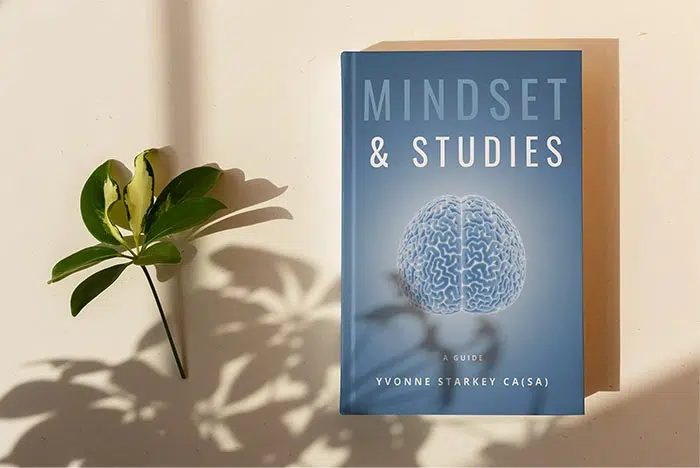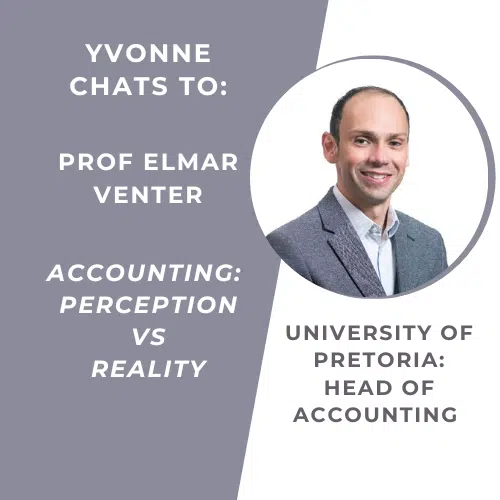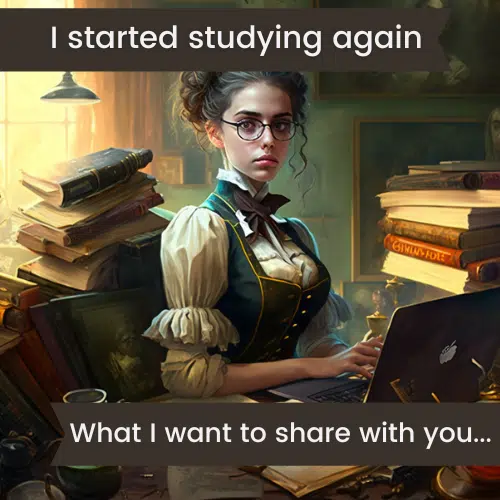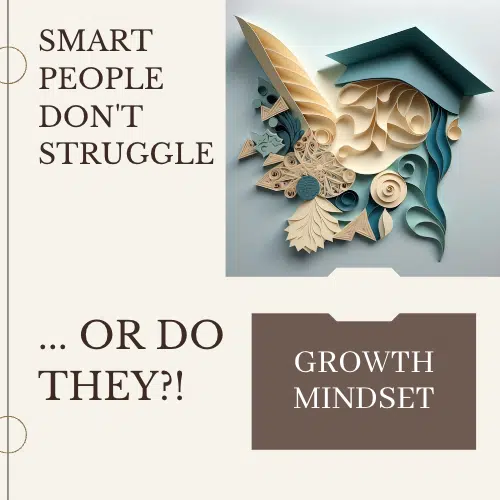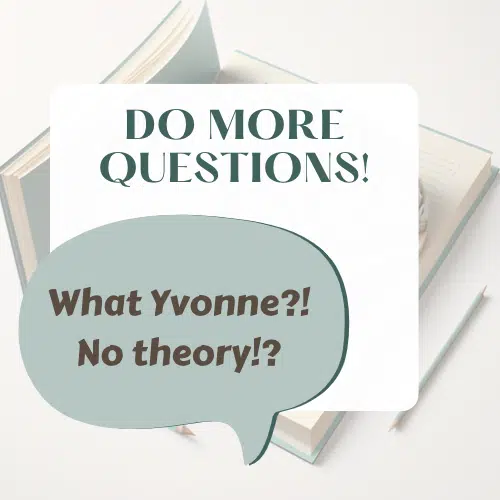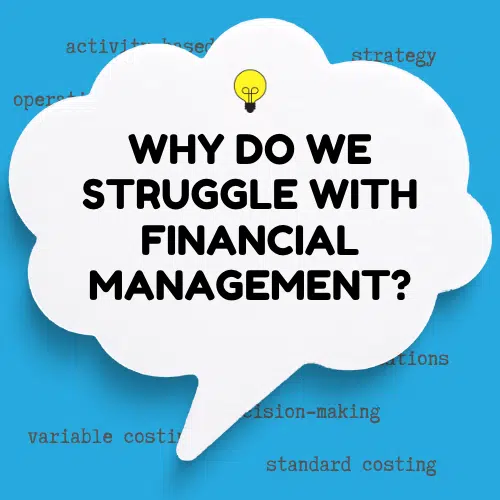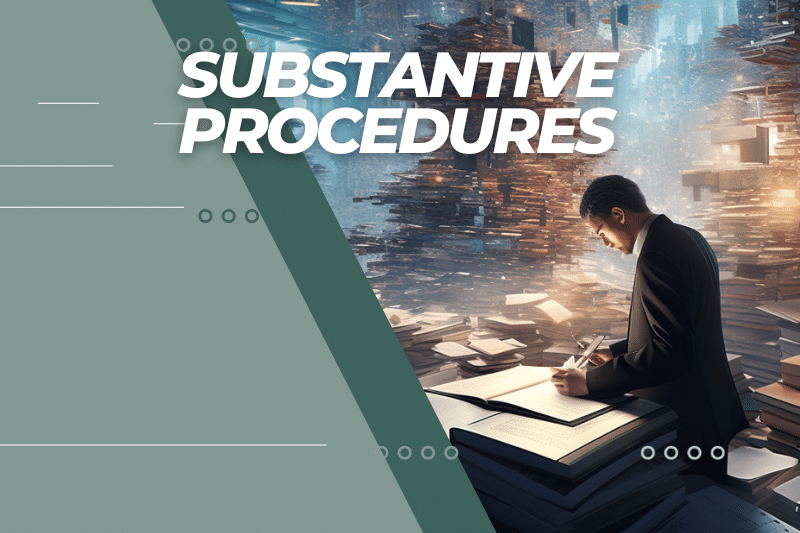Should you leave questions until AFTER you're finished studying?
(This article is part of a series)
As part of my work with accounting students on their Study Strategy, this is a topic we discuss at length, as part of our discussion around how to make study sessions more effective, and improve exam performance.
I’m writing a series of articles explaining a few reasons why I give the advice I do to the students I work with. You can read others here:
- “What are the Outcomes?”
- This is the first article, and I also explain WHY I want you to challenge your thinking and what to consider as you make your decision, so I’m not going to repeat that here.
- Explore the Obstacle Course
- Elon Musk Says So
Let’s get straight into another reason I suggest starting with questions.
Know vs Do
Sadly, earlier levels of studying taught us that the most important, if not ONLY component of your learning is to ‘know stuff’.
This has meant we’ve worked a LOT on our memory retention skills. Consciously or unconsciously, our belief is something like this:
“If I know my stuff, I’ll pass”
At higher levels, we find this belief starts falling apart. Our study approach isn’t really ‘working’ anymore. Why?
Because your exams require you to “DO stuff”.
‘Knowing stuff’ does NOT automatically mean you can ‘do stuff’.

Example
I KNOW what my friend looks like. This doesn’t mean I can draw her.
It doesn’t even mean I can describe her well enough that an artist would accurately draw her! I can watch a million YouTube videos on how to draw. The best techniques, tools, paper etc. That STILL doesn’t mean I can draw her.
What’s missing?
I need to have the SKILL of drawing, and the skill of communication to articulate details of features and a description accurate enough for someone else to interpret into a drawing. Just knowing what she looks like, will not automatically give me these skills.
What am I saying here?
Being able to DO stuff with your knowledge requires more than JUST knowledge.
As discussed in the ‘What’s the Outcome?‘ article, the reason you’re learning all this stuff is to be able to DO stuff as a professional.
Knowledge is a component of your learning, but it is NOT the only skill you need. You need to understand what underlying skills you’ll need to achieve the tasks, to DO the work.
Applying your knowledge to totally different situations, and being able to communicate how the theory relates and impacts that specific situation is a skill. This takes practice, cannot be crammed, or learnt off-by-heart. You cannot ‘wait’ until you know the theory BEFORE you start working on these skills.
Yes, I know the argument… “Yvonne, I can’t apply or communicate something when I don’t know any of the theory. I need to know the theory first”.
I understand the logic behind this argument, and on the surface, it seems rational. However, you also know that you NEVER have time to finish the theory to the extent that you feel comfortable with AND do questions with enough time to develop these skills… so you squeeze a few questions in the two weeks before exams.
Also, the skill of communication is like the skill of drawing. If I can draw… I can draw anything. If I work on the skill of communication, I am able to communicate WHATEVER I know. If that’s only 30% of the stuff… then I should be able to communicate 30% of the stuff. (This is a longer discussion, and not quite relevant for this particular point. Suffice to say that I TOTALLY understand this concern.)
Also, you’re still misunderstanding the point of doing the question first, in the context I’m talking about. I’m talking about understanding and identifying WHAT skills and knowledge you’ll need in order to do the job. ie: Working through it and identifying the gaps in your theory and skills as you realise “Sheesh, I’m actually not sure of how these types of calculations work on my financial calculator” or “Hmm, in order to do this questions, I’d need to be able to draft a report with an introduction, and I don’t really know what introductions are supposed to include”
So what?
If you’re focussing on knowledge alone for most of your academic year… at which point do you identify these ‘other’ skills? At which point do you learn to develop these? Two weeks before the exam? Is this enough time to develop the skills needed to put your knowledge to work?
Most students have experienced this to their detriment. (Again, especially at higher levels in their studies)
If you’ve experienced any of these, this could be why:
- You’ve worked through the topic, but still can’t do the questions.
- Worse, in some cases, the questions don’t make sense. You don’t quite know what the question wants.
- Your first thought is “I haven’t seen a question like this before…”
- Your lecturers’ comments / exam results indicate that you’re ‘knowledge dumping’.
- You know the theory, but you can’t do discussion questions
Without visualising and understanding WHY you need the knowledge, what you need to be able to DO with it… what exactly are you focussing on when you’re learning?
By working with questions before you start, you can achieve two things:
- You’ll guide your learning and focus towards what you may need to be able to do for your clients with the knowledge you’re learning today. (This is what examiners are trying to simulate in your exams, so this is not ‘just’ for your future career)
- You’re identifying ‘other’, underlying skills that you need to work on while you’re learning. (Eg: Application and Communication)
CRUCIAL:
The WAY you’re working with questions is key here. If you’re doing this without conscious thought of the two points above, all you’ll be doing is ‘learning the question and solution off-by-heart’. This is pointless, because you’ll never see THIS question again. If all you can do is regurgitate and answer to THIS problem. You won’t pass, and you’ll be a terrible professional.
Note: The fact that most students do questions by learning the questions and solutions off-by-heart is the reason most lecturers will discourage you from doing questions earlier in your studies. Without understanding and working with these points, they KNOW you’re only going to learn a database of questions and solutions, which means you don’t actually ‘learn’ anything.

